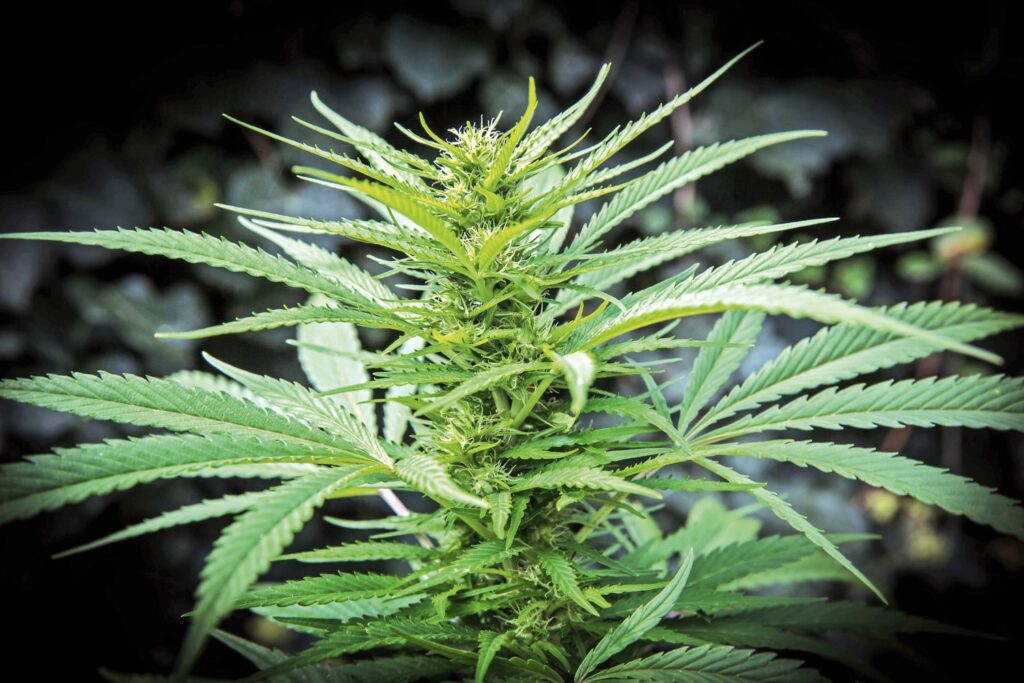No products in the cart.
Uncategorized
Navigating the Marijuana Laws in Singapore
Introduction
Overview of marijuana laws in Singapore
Singapore has some of the strictest marijuana laws in the world. The possession, consumption, and trafficking of marijuana are all illegal in the country. Under the Misuse of Drugs Act, anyone found in possession of even small amounts of marijuana can face severe penalties, including fines and imprisonment. Singapore’s zero-tolerance policy towards drugs reflects the government’s commitment to maintaining a drug-free society. It is important for residents and visitors to be aware of these laws and to strictly adhere to them to avoid serious legal consequences.
Importance of understanding the laws
Understanding the marijuana laws in Singapore is of utmost importance for both residents and visitors. Singapore has strict regulations and severe penalties for the possession, consumption, and trafficking of marijuana. Being caught with even a small amount of marijuana can result in imprisonment, fines, or even corporal punishment. Therefore, it is crucial to be aware of the laws surrounding marijuana to avoid any legal trouble. Additionally, understanding the laws can help individuals make informed decisions and stay out of harm’s way. By knowing the consequences and risks associated with marijuana in Singapore, one can navigate the legal landscape with caution and ensure compliance with the law.
Purpose of the article
The purpose of this article is to provide a comprehensive understanding of the marijuana laws in Singapore. With the increasing global discussion on the legalization and decriminalization of marijuana, it is crucial to understand the strict regulations and penalties associated with its possession, use, and distribution in Singapore. By exploring the history, current laws, and potential consequences, this article aims to educate readers about the risks and legal implications of engaging with marijuana in Singapore.
History of Marijuana Laws in Singapore

Early laws and restrictions
Early laws and restrictions surrounding marijuana in Singapore have a long and complex history. The first legislation specifically targeting cannabis was introduced in 1870, with the Opium and Smoking Act. This act aimed to control the use and sale of opium and other substances, including cannabis. Over the years, Singapore has implemented strict laws and regulations to combat drug abuse and trafficking, including marijuana. Possession, consumption, and trafficking of marijuana are considered serious offenses, with severe penalties such as imprisonment and fines. These early laws and restrictions set the foundation for Singapore’s zero-tolerance approach towards marijuana, making it crucial for residents and visitors to be aware of the legal consequences associated with the drug in the country.
Toughening of laws in the 1970s
In the 1970s, the laws surrounding marijuana in Singapore underwent a significant toughening. This was a response to the growing concerns about the negative effects of drug abuse and the increasing prevalence of marijuana use in society. The government implemented stricter penalties for possession, trafficking, and consumption of marijuana, with the aim of deterring individuals from engaging in drug-related activities. These measures included longer prison sentences, heavier fines, and even the possibility of corporal punishment. The toughening of laws in the 1970s reflected Singapore’s commitment to maintaining a drug-free society and sending a strong message that drug abuse would not be tolerated.
Current legal status
In Singapore, the current legal status of marijuana is strictly regulated and possession, consumption, or trafficking of the drug is illegal. The Misuse of Drugs Act is the primary legislation governing drug offenses in the country, and it classifies marijuana as a Class A controlled substance. This means that the penalties for any involvement with marijuana can be severe, including imprisonment and fines. The Singaporean government maintains a zero-tolerance policy towards drugs, and this includes marijuana. As such, it is crucial for individuals to be aware of and comply with the strict laws and regulations surrounding marijuana in Singapore.
Penalties for Marijuana Offenses

Possession of marijuana
Possession of marijuana in Singapore is strictly prohibited and carries severe penalties. The Misuse of Drugs Act classifies marijuana as a Class A controlled drug, which is the most serious category. Any person found in possession of even a small amount of marijuana can face imprisonment for up to 10 years, along with a hefty fine. The law enforcement agencies in Singapore have a zero-tolerance policy towards drug offenses, and they actively conduct random checks and searches to ensure compliance. It is important for residents and visitors to be aware of the strict laws surrounding marijuana possession in Singapore and to refrain from any involvement with the drug to avoid serious legal consequences.
Trafficking of marijuana
Trafficking of marijuana is a serious offense in Singapore, with strict laws and severe penalties in place. The country has a zero-tolerance policy towards the possession, consumption, and distribution of marijuana. Those found guilty of trafficking marijuana can face lengthy prison sentences, hefty fines, or even the death penalty. The government of Singapore is committed to maintaining a drug-free society and has implemented stringent measures to combat drug trafficking. It is crucial for individuals to be aware of the consequences and to respect the laws surrounding marijuana in Singapore.
Cultivation of marijuana
Cultivation of marijuana in Singapore is strictly prohibited and illegal. The country has a zero-tolerance policy towards the possession, sale, and distribution of marijuana. The Misuse of Drugs Act imposes severe penalties, including imprisonment and fines, for anyone caught cultivating marijuana. The Singaporean government views marijuana as a dangerous drug with no medicinal value and considers its cultivation a serious offense. Therefore, individuals should be aware of the strict laws and consequences associated with cultivating marijuana in Singapore.
Enforcement of Marijuana Laws

Role of the Central Narcotics Bureau
The Central Narcotics Bureau (CNB) plays a crucial role in enforcing Singapore’s strict marijuana laws. As the primary agency responsible for combating drug abuse and trafficking, the CNB works tirelessly to maintain a drug-free society. It conducts regular operations to identify and apprehend individuals involved in the cultivation, distribution, and consumption of marijuana. The CNB also collaborates with other law enforcement agencies and international counterparts to gather intelligence and disrupt drug networks. Through its efforts, the CNB aims to protect the well-being of Singaporeans and maintain the country’s reputation as a safe and drug-free nation.
Investigation and prosecution process
The investigation and prosecution process related to marijuana laws in Singapore is stringent and strictly enforced. Once a person is suspected of involvement in marijuana-related activities, law enforcement agencies conduct thorough investigations to gather evidence. This includes surveillance, interviews, and gathering of forensic evidence. If sufficient evidence is found, the individual may be arrested and charged with drug trafficking or possession. Singapore has a zero-tolerance policy towards drug offenses, and those convicted of drug trafficking can face severe penalties, including long prison sentences and even the death penalty. The prosecution process involves presenting the evidence in court, and if found guilty, the offender will be sentenced accordingly. It is important to note that Singapore does not differentiate between recreational and medical use of marijuana, and any form of marijuana possession or trafficking is considered a serious offense.
Collaboration with international agencies
Singapore has a strong commitment to collaborating with international agencies to address the complex issue of marijuana laws. Recognizing the global nature of drug trafficking and the need for a united front, Singapore actively engages with organizations such as the United Nations Office on Drugs and Crime (UNODC) and the International Narcotics Control Board (INCB). Through these collaborations, Singapore shares its expertise and experiences in enforcing strict marijuana laws, while also learning from the best practices of other countries. By working closely with international agencies, Singapore aims to strengthen its efforts in combating drug abuse and maintaining a drug-free society.
Public Perception and Debate

Views on marijuana legalization
Marijuana legalization is a highly debated topic around the world, and Singapore is no exception. The views on marijuana legalization in Singapore are largely conservative, with the government taking a strong stance against it. The country has some of the strictest drug laws in the world, and possession, consumption, or trafficking of marijuana can result in severe penalties, including imprisonment and even the death penalty. The government argues that these strict laws are necessary to maintain a drug-free society and protect public health. However, there are also voices advocating for a more liberal approach, highlighting the potential medical benefits of marijuana and the need for a more compassionate approach towards drug users. Despite these differing views, marijuana remains illegal in Singapore, and anyone caught with even small amounts of the drug can face serious consequences.
Arguments for and against legalization
The debate surrounding the legalization of marijuana in Singapore has been a contentious issue. Proponents argue that legalization would lead to economic benefits, as it could create a new industry and generate tax revenue. They also argue that it would reduce the burden on the criminal justice system, allowing law enforcement to focus on more serious crimes. On the other hand, opponents of legalization argue that it would have negative social and health consequences. They believe that it could increase the usage of marijuana, leading to addiction and other health problems. Additionally, they argue that it would send the wrong message to young people and undermine the country’s strict drug policies. As Singapore continues to grapple with this issue, the arguments for and against legalization remain at the forefront of the discussion.
Public opinion polls
Public opinion polls play a crucial role in understanding the sentiments and attitudes of the general public towards various issues, including marijuana laws. In the context of Singapore, where the possession, consumption, and trafficking of marijuana are strictly prohibited, public opinion polls provide valuable insights into the level of support or opposition towards the existing laws. These polls help gauge the evolving attitudes of Singaporeans towards marijuana legalization and inform policymakers about potential changes in public opinion. By analyzing the results of these polls, policymakers can better understand the concerns and perspectives of the public, enabling them to make informed decisions regarding marijuana laws in the country.
Navigating the Marijuana Laws

Understanding the legal definitions
In order to navigate the marijuana laws in Singapore, it is crucial to have a clear understanding of the legal definitions surrounding the drug. Singapore has some of the strictest drug laws in the world, and marijuana is classified as a Class A controlled drug. This means that the possession, consumption, or trafficking of marijuana is considered a serious offense and can result in severe penalties, including imprisonment and fines. It is important to be aware of the legal definitions and consequences associated with marijuana in Singapore to ensure compliance with the law and avoid any legal troubles.
Knowing the penalties and consequences
In Singapore, the penalties and consequences for marijuana-related offenses are severe. Possession, consumption, trafficking, or importing of marijuana can result in imprisonment, fines, or both. The Misuse of Drugs Act is strictly enforced, and individuals caught with even small amounts of marijuana can face up to 10 years in prison and a hefty fine. Repeat offenders may face even harsher penalties, including mandatory minimum sentences and caning. It is important to be aware of the strict marijuana laws in Singapore and to avoid any involvement with the drug to prevent serious legal repercussions.
Seeking legal advice
Seeking legal advice is crucial when it comes to navigating the complex marijuana laws in Singapore. With strict regulations and severe penalties, it is important to consult with a knowledgeable lawyer who specializes in drug-related offenses. They can provide guidance on the legal implications of possessing, using, or distributing marijuana, as well as help you understand your rights and options. By seeking legal advice, you can ensure that you are well-informed and prepared to make informed decisions regarding marijuana-related matters in Singapore.


